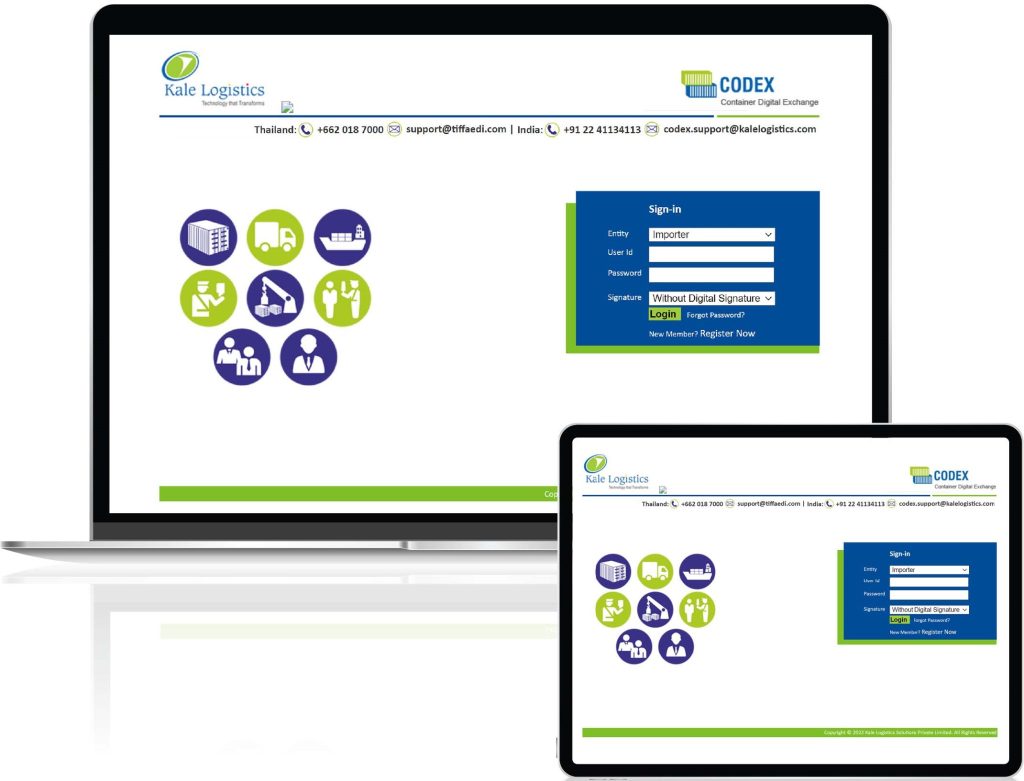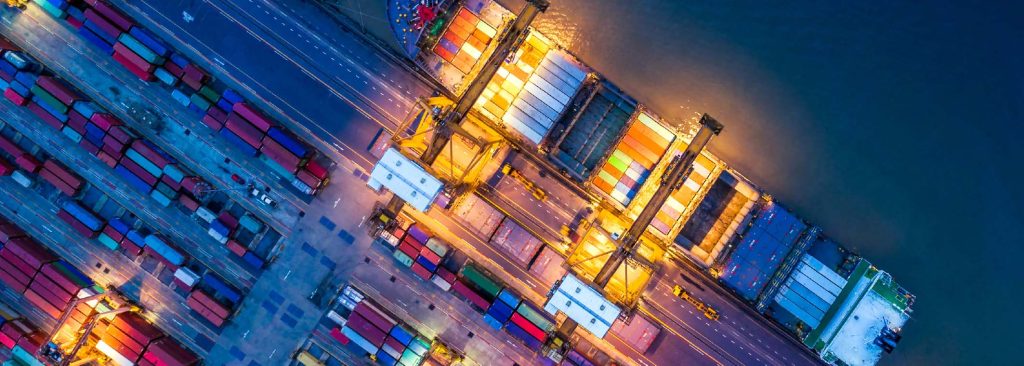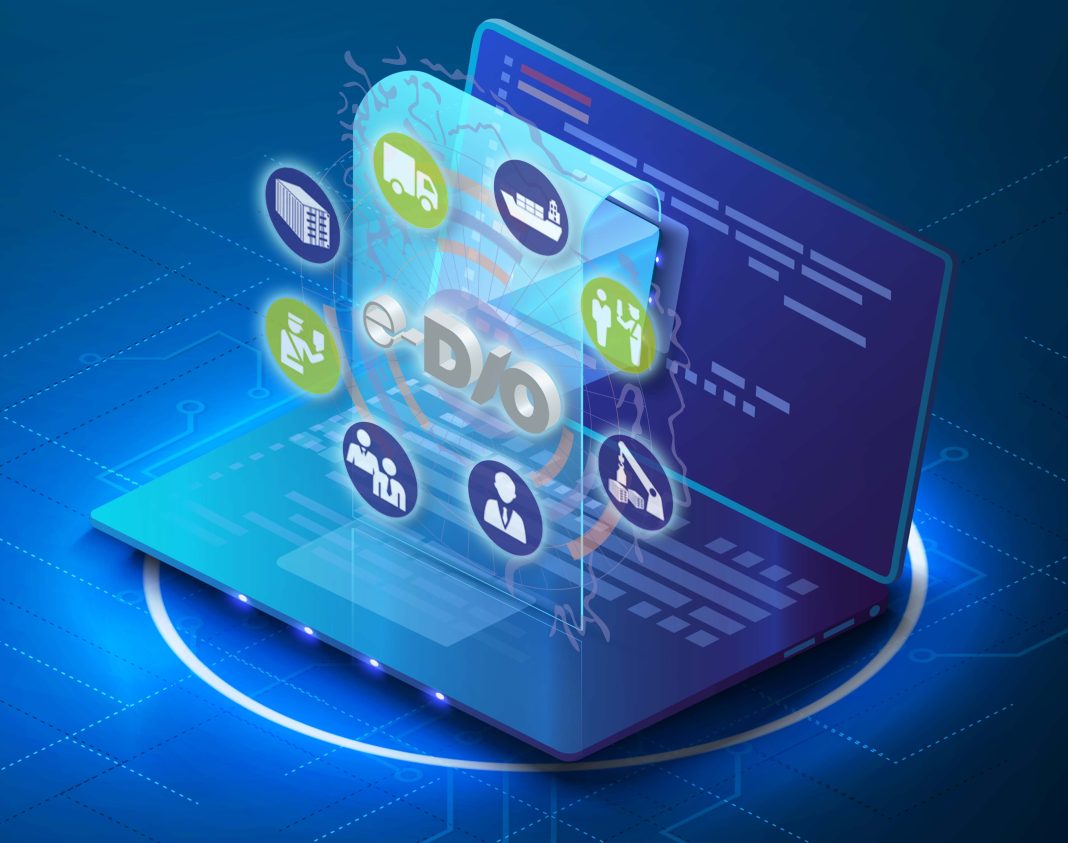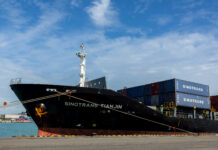Digitization has been in the wind across the Thai logistics industry for years, and involved parties have long been awaiting a more streamlined supply chain aided by digital technologies. The COVID-19 global health crisis is, in one way, a step into unknown territory, where new processes, procedures, and ways of life, such as social distancing and off-site working, are introduced. But on the other hand, it acts as the catalyst for the rapid acceleration of digitalization, pushing the logistics industry toward a new frontier.

Responding to the ever-changing needs of the economic climate, TIFFA EDI – one of the leading digital solution providers in Thailand – brought the CODEX e-DO platform into Thailand to serve domestic logistics providers and operators. This issue of LM speaks with Ms. Patcharee Lapnitimongkol, Business Development Manager, TIFFA EDI, to learn more about the CODEX e-DO platform and its benefits.
What is CODEX?
CODEX is a digital platform developed by Kale Logistics, a leading IT solution provider for the logistics industry. The platform acts as a centre of connection for all parties in logistics, making freight release faster and more convenient by converting a Delivery Order (DO) into a digital form. TIFFA EDI, in cooperation with Kale Logistics, has brought the platform to Thailand to support local users during the COVID-19 pandemic period and beyond.
Ms. Lapnitimongkol said, “TIFFA EDI planned to bring CODEX e-DO to Thailand 3 years ago, before the beginning of the COVID-19 pandemic. However, the pandemic caused many changes to the logistics procedures and working policies. With the increasing infection numbers across the operational workforce, we knew we had to speed up the process and bring in the platform faster to provide the logistics industry with a new convenient, fast, effective, and safe working channel.”
“The CODEX e-DO platform creates value from the bottom-line information sent in by shipping lines and ship agents”

“The CODEX e-DO platform creates value from the bottom-line information sent in by shipping lines and ship agents. Once the electronic manifest (e-Manifest) is communicated to the involved government agency via the National Single Window (NSW) platform, an Electronic Delivery Order (e-DO) can be created in seconds with all the correct information. At the same time, customers can access the CODEX e-DO platform using PCs or CODEX Mobile Application on a smartphone,” Ms. Lapnitimongkol explained.
Currently, the platform serves international shipping lines such as Mediterranean Shipping Company (MSC) and SITC Container Lines (Thailand) Co., Ltd. (SITC), and many Thai logistics operators.
Challenges in DO Digitalization in Thailand
It is generally accepted that the logistics industry constitutes layers of complicated work procedures topped with local and international government regulations. Therefore, integrating a digital platform into the industry must deal with the aforementioned challenges and simplify them.
“There are many challenges in bringing a digital logistics platform into Thailand, and the work processes in the Thai logistics industry are complicated and unique. For example, the Thai Custom’s e-Manifest, and the fact that it allows a breakdown of a freight release document into partial freight release documents. For these reasons, we worked closely with Kale Logistics to fine-tune the CODEX e-DO to accommodate the unique working process of the Thai logistics industry,” Ms. Lapnitimongkol said.

“Another Challenge, other than adjusting the platform to accommodate Thai logistics procedures, is how to make the platform successful. Support from all involved parties is a crucial factor. We have had great cooperation from terminal operators, freight forwarders, importers, and most importantly, our shipping line partners such as MSC and SITC. Since the liners are the authorizing party for the freight release, their pioneering support as the primary users of the CODEX e-DO is a great asset. Such adoption helps attract other users into our system,” said Ms. Lapnitimongkol.
Benefits of CODEX e-DO
Digitization via the CODEX e-DO platform comes with several benefits for operators in the logistics industry. Shipping lines, importers, freight forwarders, customs brokers, and terminal operators can benefit from a streamlined network of communication where a data connection is clear, accurate, and transparent.
Ms. Lapnitimongkol said, “Traditionally, acquiring freight release documentation requires many documents to be declared, including a Bill of Lading, Delivery Order, proof of payment, etc. The consignee or agency then has to send their staff to pick up the freight release from the shipping line’s office. For a large shipping line, the process of picking up such documentation could take hours.”

“By swapping to the CODEX e-DO platform, importers or freight forwarders can file a request for freight release in advance, including proceeding with payment transactions and pre-submitting required documentation into the system. Once the shipping line verifies the documentation, an electronic version of the freight release can be issued immediately. Thus, staff are no longer required to physically queue and pick up paper documentation at a shipping line office anymore.”
“Moreover, the CODEX e-DO platform helps improve communication between shipping lines and terminal operators. Generally, any mistakes or corrections on the freight release requires manual liaison between liners and terminal operators – which is prone to errors – and could cause lots of problems in the container releasing process.”
“The CODEX e-DO platform allows shipping lines to adjust, change or suspend freight release easily, and all the updates are instant”
“The CODEX e-DO platform allows shipping lines to adjust, change or suspend freight release easily, and all the updates are instant. In addition, terminal operators will receive the updated data at the same time it is updated, making the communication between the parties much more efficient.”

Into the future
CODEX e-DO marks a significant step toward digitization for the Thai logistics industry, and TIFFA EDI has more plans to improve the platform’s features. For example, support for e-Duty Stamps, e-Withholding Tax, and e-Tax Invoice, all of which will complement logistics and supply chain processes, resulting in higher efficiency.
All the efforts so far reflect TIFFA EDI’s leadership in offering digital solutions, ensuring Thailand’s competitiveness on the global stage.
อัพเดตข่าวสารและบทความที่น่าสนใจในอุตสาหกรรมโลจิสติกส์ก่อนใคร ผ่าน Line Official Account @Logistics Mananger เพียงเพิ่มเราเป็นเพื่อน @Logistics Manager หรือคลิกที่นี่



















